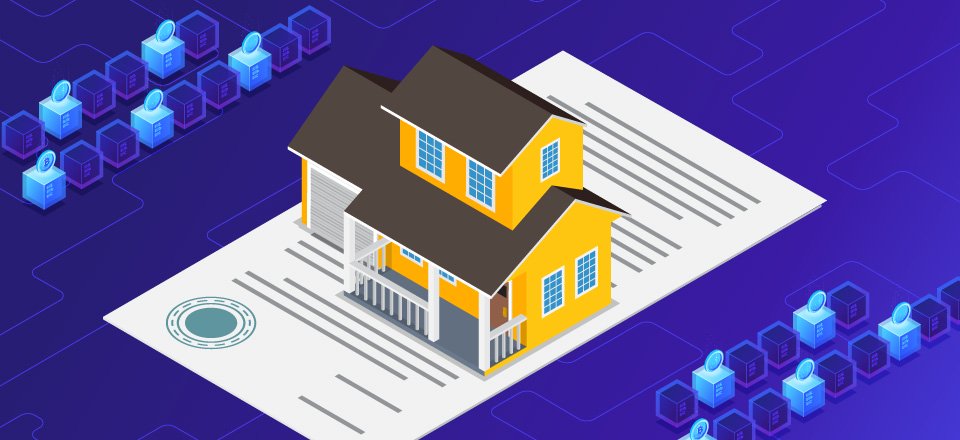
One of the single largest hurdles when it comes to homeownership is obtaining a mortgage loan. However, many homeowners find that they must apply for a mortgage more than once. There are plenty of reasons to consider refinancing a home – to take advantage of a lower interest rate, to take advantage of credit score improvements, to unlock equity in the home, and for plenty of other reasons.
Of course, refinancing is just as problematic as obtaining an initial home mortgage in the first place. There’s good news, though. Blockchain technology might be able to make refinancing a home simpler, cheaper and faster. What should you know?
Why Refinance with Bitcoin?
First, let’s put a myth to bed. Blockchain has nothing to do with bitcoin, not really. While it does provide the foundation for cryptocurrencies like bitcoin and Litecoin, it’s not necessarily tied to those currencies. Blockchain is actually a distributed ledger that allows instantaneous updates to information, ensures complete security of the data stored within it, and does not need a central authority or controller.
Every user on the blockchain has a copy of the ledger. That copy is updated instantly when new data is added. This makes it a distributed database, and individual users utilize private keys so that they can sign transactions and keep information secure. Not only does that ensure complete security for the information, but it ties data such as transaction information to specific individuals. This is important because it has a direct impact on the utilization of blockchain within the refinancing process.
Here’s the important takeaway from this discussion. In most cases, providing verification of authenticity requires a third party. Tying transaction information to an individual’s identity requires using an additional service provider, which comes with additional costs and time factors. For instance, using a notary public requires both time and money. Using an escrow company or a title company also requires both time and money.
Delving into Mortgage Refinancing with Blockchain Technology
While the average real estate agent will likely not deal with blockchain technology in his or her daily duties, this tech will play a foundational role in how the mortgage industry works in the future, including refinancing homes. And, it all comes down to smart contracts – bits of code within the blockchain that ensure transactions occur exactly as they should, and are recorded in a public ledger system.
As American Banker points out, “The principal feature of smart contracts is the risk reduction available through nondiscriminatory execution, which for some, will lead to greater economic benefits. Put another way, it’s a smart contract’s lack of a central counterparty agent that will enable these contracts to service markets with greater efficiency.”
What does that mean in plain English? It means that every aspect of the refinancing process can be automated, streamlined, and improved. The conventional process to obtain a home mortgage can take between 45 and 60 days. Refinancing is not much better. With blockchain technology at work, some experts predict that duration could be cut down to less than a week, and the costs would be just a fraction of what homebuyers are now charged.
It’s Already Being Tested
Think that the use of blockchain technology in the world of home mortgages and refinancing is far in the future? Think again. It’s actually already underway. Bloomberg reported back in January 2018 that several major banks were involved in test projects.
Matthew Leising, writing for Bloomberg’s Markets segment, reported, “A group of big financial institutions wants to use the blockchain to make it easier and less costly to track home mortgages packaged into securities. Credit Suisse Group AG, U.S. Bancorp, Wells Fargo & Co., and Western Asset Management Co. said Thursday that they successfully tested the distributed ledger technology as a way to standardize the data involved in securitized home loans and made it more transparent.”
Now, yes, that applies more to how banks and lenders benefit from home loans than it does to how homeowners will use blockchain technology to refinance their homes, but the seeds are there.
Benefits of Blockchain Technology for Refinancing
In order to truly understand why blockchain would be used within the refinancing process, we need to drill down into some of the benefits afforded by this technology.
Credit History: One of the most important benefits of using blockchain technology in the refinancing process is that consumers could provide their credit history for lenders immediately, with all the information in one central place, and tied directly to their identity.
Income: A consumer’s income information would be readily available to lenders so that an informed decision could be made quickly.
Property Value: The value of the property in question would be apparent immediately, with no need for digging.
Title Encumbrances: All title encumbrances, such as liens, would be disclosed immediately, removing the need for additional research and using additional third parties.
Proof of Ownership: Homeowners would be able to provide lenders with an unbroken chain of ownership, providing their stake in the property.
Documented Lists of Repairs and Improvements: A property could have its own digital identity, including a documented list of all repairs and improvements made that might affect its value.
Additional Financing Options: For homeowners, another benefit of blockchain technology in the refinancing process would be the ability to go beyond conventional lenders. Peer-to-peer lenders, property investors and others could become viable sources of funding for consumers in this instance.
In the End
When it’s all said and done, blockchain technology has a lot to offer the mortgage industry. However, while it is being explored currently, don’t expect drastic change to come quickly, particularly when it comes to traditionally conservative financial organizations. Alternative sources of funding are rolling out this technology much more quickly, though, providing homeowners with an immediate avenue to receiving the funding they need.

